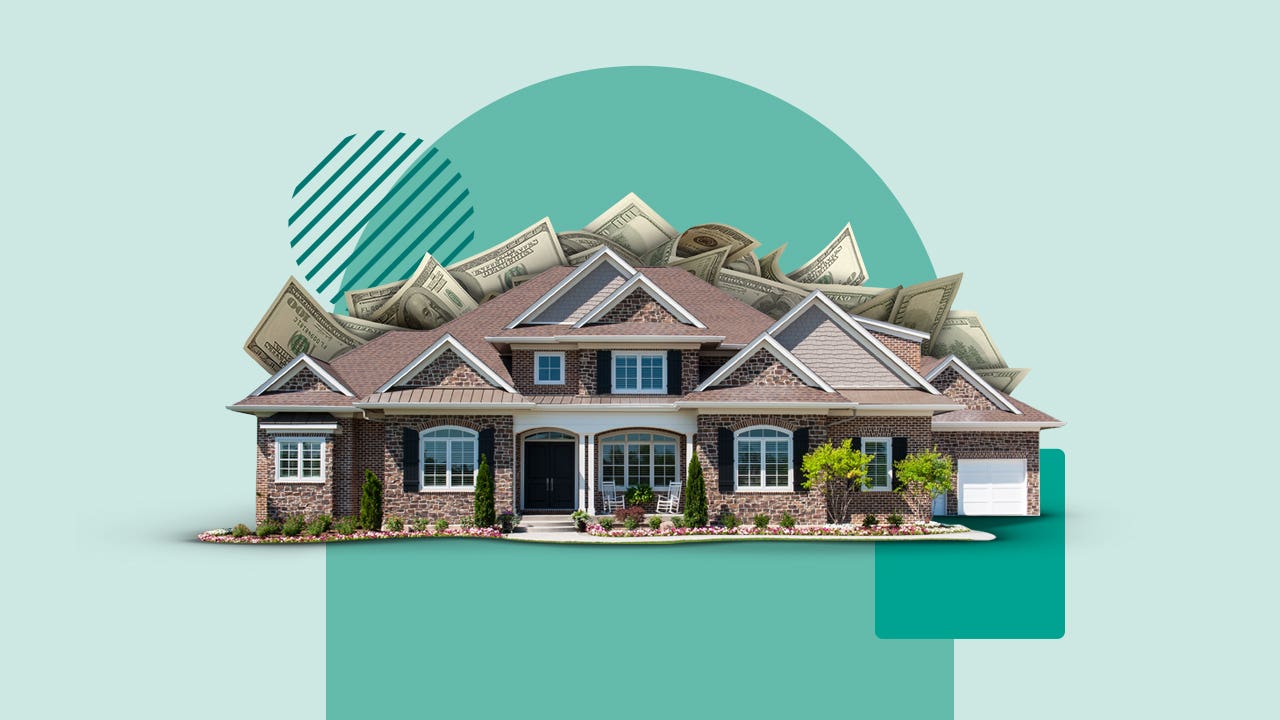What income do I need to afford a $1 million house?




Key takeaways
- To afford a $1 million house with a 20 percent down payment and a 6.5 percent mortgage rate, you’ll need about $218,000 in annual income.
- A common housing-affordability guideline states that you shouldn’t spend more than 28 percent of your monthly income on housing-related costs.
- Don’t forget to factor in the hidden costs of homeownership, including utilities, maintenance and upkeep.
Dream of living in a spacious mansion, or even a modest home in an expensive location, like New York or San Francisco? Your desired property could easily run you $1,000,000 — more than double the national median home price of $443,471, according to Redfin. How much you need to earn to afford a million-dollar purchase depends on several factors, including, importantly, the interest rate of your mortgage.
What income do I need to afford a $1 million house?
For a $1 million purchase, assuming a 20 percent down payment and a 6.5 percent interest rate on a 30-year loan, your monthly principal and interest costs will total $5,056. That’s $60,672 per year on principal and interest alone — not including property taxes, insurance and homeowners association fees, which vary by location and will add to your total monthly payment. For simplicity’s sake, let’s add another $1,000 per month to those costs and call the annual total $72,672.
A common housing-affordability guideline states that you shouldn’t spend more than about a third of your income on housing (see more on the 28/36 rule below). Assuming an annual housing expenditure of $72,672, you’ll want to triple that for the approximate annual salary you’ll need to make to comfortably afford a $1 million purchase: $218,016.
Before committing to such a costly purchase, it’s important to consider your budget and whether you can realistically afford to take on such a significant debt. A recent PYMNTS Intelligence survey found that 62 percent of consumers live paycheck-to-paycheck and that includes 48 percent of consumers who earn more than $100,000 annually.
What is the 28/36 rule?
When considering whether you can afford a $1 million house, the 28/36 rule is a good place to start. This rule of thumb recommends that you spend no more than 28 percent of your total income on your monthly housing costs, and no more than 36 percent on monthly debt payments overall.
Let’s see how the 28/36 rule checks out using the annual income determined above of $218,016 per year. Dividing that total by 12, it breaks down to $18,168 per month, and 28 percent of $18,168 is $5,087. So that would be the maximum amount you should spend on your mortgage payment per month (including principal, interest, property taxes, insurance premiums and possible HOA fees).
The 36 part of the equation is also important. Add up your total monthly debts, including any car payments, credit card debt and student loans you owe each month to ensure you don’t exceed that 36 percent mark. You don’t want your house payments to stretch your overall budget so thin that you can’t afford life’s other essentials.
Don’t forget to factor in the hidden costs of homeownership, including utilities, maintenance and upkeep.
What factors determine how much you can afford?
A home’s list price is not the only consideration when it comes to figuring out how much house you can afford. Here are some other factors to think about:
- Down payment: The amount you put down upfront has a direct correlation to how much your monthly mortgage payment will be, because the more you pay, the less you have to borrow. The down payment is particularly important with high-priced homes: The standard 20 percent on a $1 million property is a huge $200,000 outlay.
- Loan-to-value ratio: Your loan-to-value ratio, or LTV, is the percentage of your home’s total value that you’re borrowing. Your LTV is closely related to the size of your down payment.
- Debt-to-income ratio: DTI is the ratio of your gross monthly income to your monthly debt payments. Mortgage lenders want to see a low number here: The greater your DTI, the more you will be viewed as a risk.
- Credit score: Unlike the DTI, a higher number is better here. The stronger your credit score, the more competitive a mortgage rate you’re likely to be eligible for. Minimum credit score requirements vary by loan type.
- Financing options: First-time homebuyer programs and down payment assistance programs are a popular option for homebuyers looking to ease the burden of a down payment and closing costs. However, high-income borrowers in the market for expensive homes likely won’t qualify.
Stay the course until you actually close
It can take weeks or even months to close on a home purchase once you go into contract. Don’t stop considering the factors above until your deal is completely done — you don’t want to do anything that might alter your credit score, for example. Don’t make any big purchases that require financing (like a car), avoid applying for new credit cards and, if possible, try not to make any big life changes (like switching jobs or getting married) until after you’ve closed.
Working with a local real estate agent who knows your area well will help ensure a smooth homebuying experience. There’s a lot to consider at this price point, and an agent’s expertise will be invaluable. With this much money at stake, it’s wise to hire a real estate attorney as well — even if your state doesn’t explicitly require one — to make sure your interests are protected.
FAQs
Why we ask for feedback Your feedback helps us improve our content and services. It takes less than a minute to complete.
Your responses are anonymous and will only be used for improving our website.
You may also like

How much house can I afford with a $180K salary?

What income do I need to afford a $750K house?

What income do I need to afford a $250K house?

